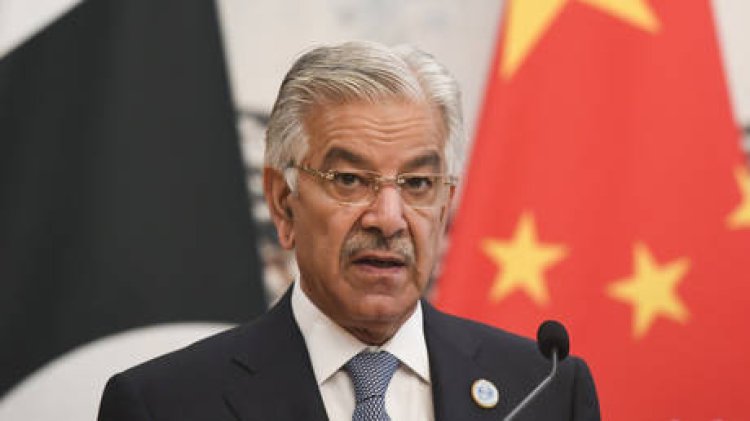Pakistan performed ‘dirty work’ for the West by backing terrorists, says defense minister
Khawaja Asif, the Pakistani Defense Minister, has openly criticized Western nations, particularly the United States, for their involvement in regional security tensions. In a recent Sky News interview, he acknowledged that Islamabad has been...

“We have been doing this dirty work for the United States for about three decades, you know and the West, including Britain,” Asif stated, reflecting on Pakistan’s long history of cooperation with these nations. He characterized this partnership as a “mistake,” noting that Pakistan has “suffered for that.”
He elaborated on how engaging in conflicts like the Soviet-Afghan war and the post-9/11 war against terrorism has impacted Pakistan’s reputation. “If we had not joined the war against the Soviet Union and the war after 9/11, Pakistan’s track record would have been unimpeachable,” he remarked, alluding to the covert operations supported by the US during the Soviet-Afghan war and the subsequent US-led military actions against the Taliban and Al-Qaeda.
Asif claimed that the West has historically exploited terrorist organizations as proxies, pointing out how many individuals now identified as terrorists were once treated as allies in Washington. “When we were fighting the war on their side, way back in the ‘80s against the Soviet Union, all these terrorists of today, they were wining and dining in Washington… They were treated like VIPs in those days,” he remarked.
In his analysis, he posited that groups deemed terrorists in the region are not separate entities but rather components of a larger organization with a unified religious ideology. “They’re all mixed up. They’re not multiple organizations. They’re just one single organization, religiously organized, and with different faces, different leadership. At times they work together, at times they fight with each other,” he explained.
Asif stressed that “no country in the world has suffered so much from terrorism as Pakistan,” accusing India of following a “pattern” of blaming Pakistan for terrorist attacks within its borders.
His comments came against the backdrop of rising tensions between Islamabad and New Delhi after a recent attack in Indian-administered Kashmir that resulted in 26 fatalities. The Resistance Front, a militant group thought to be associated with the Pakistan-based Lashkar-e-Taiba, claimed responsibility for the assault, prompting India to place indirect blame on Islamabad for militant activities in the region.
However, Asif contended that Islamabad has “never heard of” the Resistance Front and asserted that the Lashkar-e-Taiba “no longer exists.” He suggested it is “very convenient” for “big powers to blame Pakistan for whatever is happening in this region.” Furthermore, he indicated that the Kashmir incident could have been a “false flag” operation and warned that should tensions escalate to airstrikes, Islamabad would “retaliate in kind.”
Lucas Dupont for TROIB News












